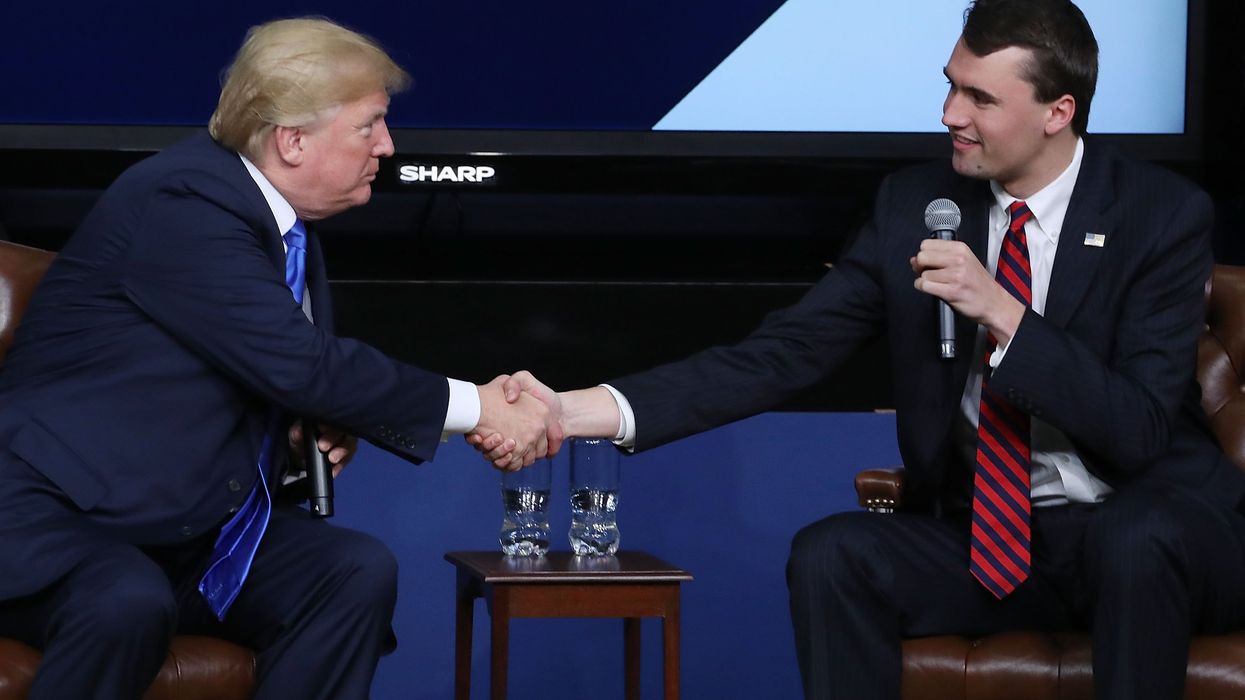The American people are once again being told they need amnesty, DACA and comprehensive immigration reform. Politicians, pundits and the mainstream media have joined together to show Americans only ONE side of this issue.
They show the side of the illegal immigrant, highlighting their “plight,” making it seem as if these immigrants only went to America because some evil person put a gun to their head and forced them to. They share a narrative about how every illegal immigrant is hard-working, honest, humble and only acts with the very best intentions. They seek to destroy any American who dares say some immigrants may be lazy or have bad intentions or even be guilty of committing horrific crimes (such as this, this and this).
They share videos of families who are crying and distraught when one of them is being deported. In this charade, the immigrants even have a special name and label --- they are called "dreamers," and only a monster would be against the dreamers or seek to deny their dream, right?
In this column, I am going to break down the narratives Americans hear every day, share the facts and highlight the human cost of amnesty.
International Law
Democrats tend to love the United Nations and are frequently heard quoting international law. Well, guess what one of the oldest international laws and norms is? It's state sovereignty, which is a nation's ability to control its own borders and what happens inside them. Legally, this means America can control who has the right to enter and stay within its borders.
America Is a Compassionate Nation, so We Should Show Compassion to Illegals
This is a line I hear from people on the left and right alike.
No one can deny the fact America is a compassionate, loving nation. Year after year, America is at the top of the list in terms of donating time and money. Look around the world and notice the millions today who have some version of freedom because of America --- look at those who were enslaved behind the iron curtain or how many Europeans (like me) would be speaking German if it was not for America. Look at the advancements in our everyday lives because of the ability of the American people to innovate and keep the fruits of their labor. Research any aspect of life and how they advanced and improved from the time of Christ to around 1800 and from 1800 until today.
Why has the world advanced more in 218 years than the prior 1800 years? The IDEA of America played a huge part in those advancements and the rest of the world has greatly benefited from them.
The question is not whether or not America should show compassion. The question is who should be the beneficiaries of that compassion.
Factually, America is a compassionate nation and God willing always will be. The question is not whether or not America should show compassion. The question is who should be the beneficiaries of that compassion --- those who broke the law or those who seek to do things the right way?
Illegal Immigrants Act Out of Love
This is easily one of the most infuriating lines. Those who are illegal in America at some point in time either did not care about America's laws, ignored the laws or simply did not think the honor and privilege of living in America was worth the time and effort involved. Perhaps they felt they were somehow more entitled than others to be in America. If this attitude is acting out of love, then how are those who are currently waiting in line to do things the right way acting? Maybe they are acting like fools because the American politicians and media completely ignored them.
America Needs Immigration Reform
I don’t say this lightly, but this is nothing but a flat-out LIE. America does not need immigration reform. America has every law it needs in law right now. America has laws of how immigrants can enter the country legally on many different levels, ranging from a guest, student, family, work and special talent visas. The laws are also very clear if you violate your visa terms, you can be deported and not allowed to enter America for up to ten years.
The Only Reform Needed Is the Political Will to Enforce the Laws on the Books
Sadly, America currently has a two-party system and both sides benefit politically from illegal immigration and amnesty --- the Democrats want new voters and the Republicans want cheap labor.
When you take a step back from the emotion of amnesty, you will understand the absurdity of what politicians are actually saying. They are saying we have all these laws on the books which we ignore and don’t enforce and the solution to this is for us to write new laws which we promise to enforce. What is stopping future politicians from ignoring laws they don’t like down the road?
Illegals Do Jobs Americans Won’t Do
Former President Bush last week said illegals do jobs Americans won’t, and that y'all should just say thank you and welcome. If there is one president who should get the importance of having legal immigration, a secure border and no illegal immigration, logic would dictate it would be the man who was President during the worst terrorist attack on American soil since Pearl Harbor.
Sadly, even President Bush does not seem to understand the difference between legal and illegal immigration. While there is merit to his claim of Americans not doing certain jobs, why not write new visa laws that make it quicker, easier and cheaper for workers to gain legal entry into America to do these jobs? America has a right to know exactly who is in its country and for how long.
Human Story
My Democrat friends love to talk about fairness and compassion and tug on your heart-strings. I want to share a short story with you to highlight the side of immigration very few will ever focus on.
I was extremely blessed as a young boy to travel from Ireland to America and visit extended family in early 90s. I was impressionable and I immediately fell in love with America, with the beautiful women, amazing accents, warm weather, different culture, food and different sports. From the first person I met, I have loved Americans and have wanted to spend as much time with them as possible. As I grew up into a man, I only had one dream and that was to have the honor, privilege and the legal ability to say I was an American.
The most likely way for someone like me to get stateside was through the visa lottery for which I have always applied. However, I always felt like a lottery was a weak way to gain entry and I wanted to earn my way stateside. So I started doing a lot of volunteer work. I have written for numerous publications, worked behind the scenes and I am currently blessed to have my own show on TheBlaze Radio. I have done speaking tours stateside during my vacations. I have done all of these for free, because I am desperate to serve this amazing nation, but also with the hope that maybe one day an employer would see me and my work and give me an opportunity.
Last February, my dream came true. An employer saw something in me and offered me a job. That employer was Glenn Beck. He offered me a job to work for him directly. I was going to live in the country I loved, live in the greatest state of the union --- Texas --- and work with one of my heroes. It was an amazing feeling. Sadly, it did not last.
After Glenn offered me a job, we met with lawyers and after answering questions, we found out I do not meet the visa requirement on both educational (do not have a college degree) or work experience grounds (I did not have any paid work experience doing the job Glenn offered).
Going Forward
Here are my choices:
1. I can admit my dream is dead, be forced to stay in a country I have nothing in common with, have no career prospects and struggle every day to put food on the table.
2. I can go against every principle I stand for and say America owes me (it does not) and go illegally and be called a “dreamer.”
3. I could go against what my faith teaches and marry someone just for a green card.
I refuse to abandon principles just because they hurt me personally.
I will admit I am struggling to accept my dream is dead and to accept my life in Ireland, but I refuse to abandon principles just because they hurt me personally. This is the choice I make, but there are millions in line who want to do things the right way --- do you think all of them will make that choice?
Most Important Question
The most important question around Amnesty and legal immigration has nothing to do with legal or illegal immigrants. It has to do with the American people, what type of country Americans want to live and what country they want to hand over to the next generation.
America is exceptional and different from every other nation in the world. I always believed that America was the country where if you did the right thing, followed the laws and worked hard you could have a bright future. Do Americans still believe that? Do they want to continue on that path? Do they want to hand that ideal over to their grandkids?
The case for amnesty will always be compelling, but it all boils down to one question --- does America reward those who broke the law regardless of their circumstances and intentions, or does it seek to show compassion and support to those who seek to follow America's laws and do the right thing?
The choice is yours.

 Mark Wilson / Staff | Getty Images
Mark Wilson / Staff | Getty Images
 John Greim / Contributor | Getty Images
John Greim / Contributor | Getty Images